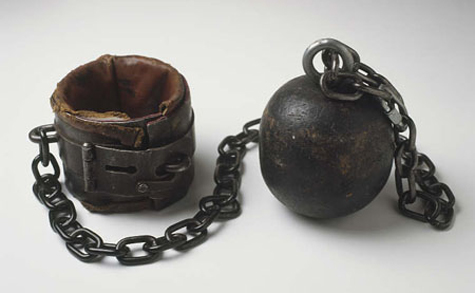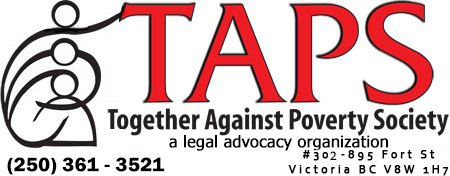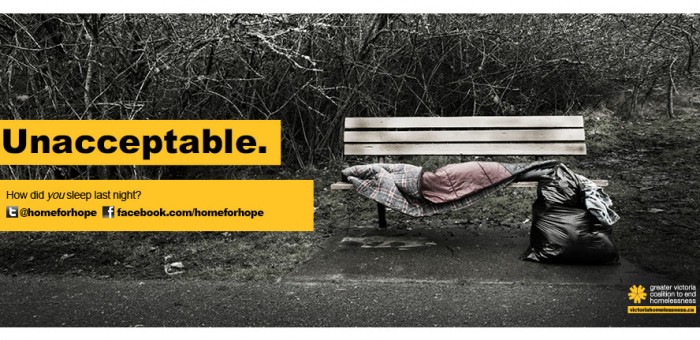Poverty and Homelessness
Regulation of the Debt Settlement Industry
On January 5th I sent a letter to Minister Anton seeking clarification as to whether or not legislation was going to be introduced to regulate the debt settlement industry. Similar legislation exists in other provinces (e.g. Ontario and Nova Scotia as well as in a number of US States). Below is the text of the letter. I have yet to receive a reply.
January 5th, 2015
Hon. Suzanne Anton
Minister of Justice
Room 232, Parliament Buildings
Victoria, B.C.
V8V 1X4
Dear Minister Anton:
I am writing you with regards to forthcoming legislation that would regulate the debt settlement industry.
In July of 2012, CTV news reported that the Ministry of Justice said that “In order to better protect consumers and families living in poverty, the B.C. government will provide legislative changes to regulate businesses that provide debt consolidation services and regulate advance fees paid.”
Since that time there has been little information from government about when we can expect to see this legislation.
Debt management companies prey upon some of the most vulnerable British Columbians. Rather than providing a solution to an individual’s debt issue, these companies seek to profit off the situation. A number of provinces including Ontario, Alberta and Nova Scotia have passed legislation to end these abusive practices within their jurisdictions. I think it is past time that British Columbia passes our own regulations which offer proper protection to our citizens.
Can the Minster provide me with an update as to what stage this legislation is currently at, and when we can expect it to be brought before the BC legislature?
Thank you for your time on this matter. I hope you had a wonderful holiday break with friends and family.
Sincerely,
Andrew Weaver
MLA Oak Bay-Gordon Head
Sharing Stories: TAPS – Income Assistance Advocacy
As part of our series on poverty and homelessness we asked people to consider sharing a story about their experiences. Sharing these stories serves as a reminder that poverty and homelessness are not a choice. It’s important for us to end the stigma and stereotypes that are too often associated with these issues. Each of us has followed a different path from the past to the present. Yet some of our paths have been rockier than others.
This week we are pleased to offer the fourth of these stories. We are grateful to Together Against Poverty Society (TAPS) for providing it to us. Assisting over 5,000 people in Victoria each year, TAPS provides free, face-to-face legal advocacy for people with income assistance, disability benefits and tenancy issues.
Income Assistance Advocacy Project Case Study
Sarah is a 21 year-old woman suffering from drug addiction, Post-Traumatic Stress Disorder and Schizophrenia. Since the birth of her son this year, she began attending peer counseling sessions and has managed to stay clean with support from friends and family.
Sarah’s best friend Tom has always been hugely supportive of her and her newborn son, despite having many challenges himself. The two decided to move in together, so that they can help each other out. After 6 months living together, the Ministry launched an investigation into the nature of their relationship, ultimately determining it is “marriage-like.” Sarah and Tom are required to apply for a joint client file; otherwise, Sarah will be found ineligible for income assistance and will owe the government a large debt.
Sarah and Tom have only ever been just friends. After living through three years of homelessness together they trust each other very strongly. Although their life together is different than most roommates, they certainly would never consider themselves spouses. They do not share a bedroom, or go on dates or share finances. Despite this evidence, the Ministry defines them as living in a marriage-like relationship pursuant to the legislation.
Sarah contacts TAPS. Her advocate prepares a submission, including letters from friends, family, and psychiatrists, appealing the Ministry’s decision. Despite this, the appeal is unsuccessful. On further appeal, the Employment and Assistance Appeal Tribunal upholds the Ministry’s decision that Sarah and Tom are in a marriage-like relationship.
Recognizing the unfairness of this, Sarah’s TAPS advocate contacts a pro-bono legal organization and lays out a case for judicial review of the decision. The Tribunal and Ministry agreed to a rehearing after learning of the impending judicial review. Ultimately the decision is overturned and Sarah and Tom happily live together once more!
* A total number of 2240 clients were helped by TAPS’ Income Assistance Advocacy Project in 2014 alone.
The Daily Show Takes on Homelessness
Over the past several weeks we’ve been focusing our attention on the issue of poverty and homelessness in British Columbia. Our goal is to increase awareness and offer action items that individuals can take to support local organizations working in the area. We’re also working towards strengthening the moral, social and economic case to end homelessness in our province.
Just before Christmas, in the third of our ongoing series, I compared the cost of dealing with homelessness to the cost of not dealing with it. I pointed out that there is ample national and international research to demonstrate that substantial cost-savings occur when we move away from managing homelessness through the provision of emergency services, to actually solving homelessness through a housing-first approach. For example, a recent national report concluded that spending an extra $46 per Canadian a year on affordable housing could dramatically reduce homelessness, and in turn reduce the $7 billion per year cost of homelessness on our economy. Utah in the United States provides direct evidence to back these claims up. In 2005, Utah launched a homelessness reduction strategy after it was estimated that by housing the chronically homeless the state could save an average of $8,000 per person on costs such as emergency room visits and jail stays. As of 2014, the program has reduced chronic homelessness in Utah by 72%.
Last night The Daily Show with Jon Stewart featured a segment on Homelessness with reporter Hasan Minaj. The Utah success story was the focus of their piece. I encourage you to watch this satirical spoof and distribute it widely. It may speak directly to those swayed more by economic arguments than social or moral arguments.
The Government’s Role in Ending Poverty and Homelessness
Over the last few weeks I’ve been highlighting the extent of poverty and homelessness in British Columbia and, in particular, Greater Victoria. It’s clear that significant work still needs to be done to address these issues. But it’s also important to recognize the good work that has and is taking place. Through new subsidized housing units, the provision of rent supplements and other programs, local groups, in partnership with the Province, have provided housing and prevented homelessness for many vulnerable people in Greater Victoria.
Despite these efforts, combating poverty and homelessness remains a struggle, not only in British Columbia, but also throughout Canada. We cannot solely rely on the work of non-profit organizations and charitable groups to resolve these issues — they need government leadership and help from all of us. And all levels of government must step up and provide the resources and support so desperately needed.
How did we get here?
In the 1960s and 1970s, amendments to the National Housing Act (NHA) launched a number of public housing and support programs that led to the creation of around 200,000 social housing units over a 10-year span. However, these programs were short-lived due to cutbacks in social housing and related programs beginning in the mid 1980s.
Today, annual national investment in housing has decreased by over 46% and current federal operating agreements are set to expire over the next 20 years, putting an additional 365,000 Canadian households at risk.
While there have been some new investments in recent years, including fairly substantial investments towards affordable housing in 2010 and 2006, they have been time-limited.
Overall, government action on poverty continues to fall short. Federally, Canada remains the only G8 country without a national housing strategy and provincially, British Columbia remains the only province that has not committed to developing a provincial poverty reduction plan. With 3 million Canadian households in need of affordable housing and BC having one of the highest poverty rates in the country, it is time for all levels of government to take real steps forward to end poverty and homelessness in our province.
Federal Role
In April 2014, the Canadian Government announced plans to renew the Homelessness Partnering Strategy (HPS), an approach to addressing homelessness by working in partnership with communities, provinces and territories, other federal departments and the private and not-for-profit sectors. With a commitment of nearly $600 million over five years and a new focus on using a Housing First approach, this is certainly a step in the right direction.
However, concerns over the short five-year time frame, the need for support and resources at a community level and Canada’s lack of affordable housing supply, leave many concerned about the ability of this plan to produce the results the government expects.
Similarly, in March 2014 the Governments of Canada and B.C. announced plans to extend the Investment in Affordable Housing (IAH) agreement. With each level of government committing to contribute $150 million over a five year period, IAH will support a range of housing needs for low-income individuals, families and seniors. Again, many doubt the ability of this investment to truly address the growing housing need in our province.
While strategies such as these help address some of the need, they are not enough. It is time for Canada to follow suit with all other G8 countries and develop a national plan or strategy to end homelessness.
Provincial Role
In response to BC’s homelessness crisis, the provincial government recently launched its Homelessness Prevention Program. This program expands rent supplements to four at-risk groups, helping individuals facing homelessness access rental housing in the private market. However, it does nothing to provide more affordable housing.
Instead, many argue that it is time for BC to adopt a comprehensive poverty reduction plan — one that would significantly reduce poverty and homelessness through legislated targets and timelines. The BC Poverty Reduction Coalition has been particularly active in this call, stating that BC needs a plan that addresses current issues with welfare rates and barriers, minimum wage, marginalized groups, affordable housing need, and access to childcare, education and healthcare.
This past fall, the Government of Saskatchewan announced their commitment to develop such a strategy, leaving British Columbia the only province without a plan to tackle poverty. With recent reports pointing out that BC has the highest rate of wealth inequality, a very high 16.4% overall poverty rate and one of the highest child poverty rates in the country, it is time for BC to join the rest of Canada and take comprehensive, long-term steps towards ending poverty and homelessness in our province.
Community Role
While effective action is still needed at the federal and provincial level, a number of communities across Canada have been making significant strides towards ending homelessness in their cities. Through the implementation of community plans, cities such as Lethbridge and Medicine Hat are well on target to end homelessness in their communities.
One of the champions of the recent community success has been the Canadian Alliance to End Homelessness. Through their document, “A Plan Not A Dream“, CAEH outlines the critical ingredients of a community-based plan and guides cities in the creation of their own local plans.
Here in Victoria, the Coalition’s 10-year goal to end homelessness is entering into its seventh year. The realization of their goals requires a community effort. Support from all levels of government, the private and not-for-profit sectors as well as local citizens is vital to their success.
Action Item
As an MLA, I have witnessed first-hand the impact that public opinion and engagement can have on encouraging the BC government to focus on a specific issue. Therefore, this week’s action item asks you to consider communicating to decision-makers the importance of making poverty and homelessness a priority. A good start might be to contact your local MLA and let them know that you would like British Columbia to adopt a comprehensive poverty reduction plan.
Please also consider urging your friends and family to write letters or emails to local Mayors, Councillors, MLAs and MPs, and the offices of the Premier and Prime Minister. Perhaps you might wish to rally broader community support by talking to your friends and relatives about poverty and homelessness. It’s time for us to take long-lasting, substantive steps towards ending poverty and homelessness in our Province.
Sharing Stories: Mustard Seed — Poverty and Food Insecurity
In our most recent post in our series on poverty and homelessness we asked people to consider sharing a story about their experiences. Sharing these stories serves as a reminder that poverty and homelessness are not a choice. It’s important for us to end the stigma and stereotypes that are too often associated with these issues. Each of us has followed a different path from the past to the present. Yet some of our paths have been rockier than others.
This week we are pleased to offer the third of these stories. We are grateful to The Mustard Seed for providing it to us. Entering into its 40th year of operation, the Mustard Seed is a non-profit organization providing many crucial services to those in need.
This post looks at the shift of non-profit food in Victoria, highlighting the connection between food provision and supportive programing, and the emergence of the Greater Victoria Food Share Network.
Food insecurity: The state of being without reliable access to sufficient quantity of affordable, nutritious and culturally appropriate food.
Food insecurity is one of several issues facing low-income communities in Greater Victoria, constituting one of the many facets of poverty that The Mustard Seed is working to eliminate. Through the creation of a micro food system within the organization through the production and distribution of food, followed by the composting of organic waste, The Mustard Seed does food banking well.
Our Drug and Alcohol Recovery Program at Hope Farm Healing Centre produces local, organic and fresh foods such as produce, eggs, and meat products that local businesses and non-profits purchase. Those in the program are supported in their recovery through the reconnection to land and to their food through farm work and the harvest season. Our food bank then distributes that fresh food along with all the other fresh and non-perishable foods we purchase or receive through amazing donations.
But it’s not enough to grow and distribute food when engaging with the all the complexity of poverty. The provision of food is not enough to say, find someone a place to live or help someone find suitable employment. Food helps, but it’s not enough. How do we do food banks differently in Victoria to engage positively with all the facets of poverty? How do we move away from that “Band-Aid” and emergency service, to food provision that also somehow helps someone find an affordable place to live? Or receive additional training or education to get a suitable job? How can we as food banks help those who come for support start making those positive steps out of the cycle of poverty and achieve food sovereignty?
Food banks were never set up to do this. They were a “stop-gap” with a sunset clause, meaning they were to close when food insecurity was solved. So far food insecurity persists. So as non-profits with mission statements about breaking the cycle of poverty we need to socially advocate for more government investment into long-term solutions like affordable housing, but also innovate on traditional ways of “doing” food banking to start reducing and eliminating poverty. Food banks can’t do this on their own and there is so much that needs to happen to achieve this, but here in Victoria something is shifting. Creative steps are being taken towards breaking the cycle, and to achieving food sovereignty. It’s happening through honest dialogue, collaboration, creativity and hard work.
The emerging of the Greater Victoria Food Share Network, a collaborative group of non-profits to which The Mustard Seed is a member, are moving away from traditional ways of “doing” food banks, steadily shifting away from the “emergency food” model, to one that connects food insecure individuals to their local neighborhood houses, community centres and non-profits, all of whom have supportive programing that food banks don’t. Further, food banks need to innovate better supportive programing on site addressing the root causes of poverty, like the Mustard Seed’s Family Centre focussed on skills training and capacity building for parents.
The connection of food provision and supportive programming, both going hand in hand, is transitioning from 7000-8000 people all heading down to the local food bank to line-up for food, to folks walking across the local park in their own neighborhood to collect an increasingly healthy and nutritious food hamper. Then they are provided with opportunities to participate in programs such as skills training, child care, employment programs and information on access to more affordable housing.
This is one of many collaborative initiatives of the Network and one small step towards a newly emerging way of “doing” food banks or perhaps more appropriately called “food access” in Greater Victoria. It’s not just about giving out food. It’s about the provision of healthy and nutritious food that creates connection. That creates opportunities. That’s done with dignity and respect. And most importantly that breaks the cycle of poverty. Because if we’re not doing that, then we’ll always have food banks. And who wants those?








